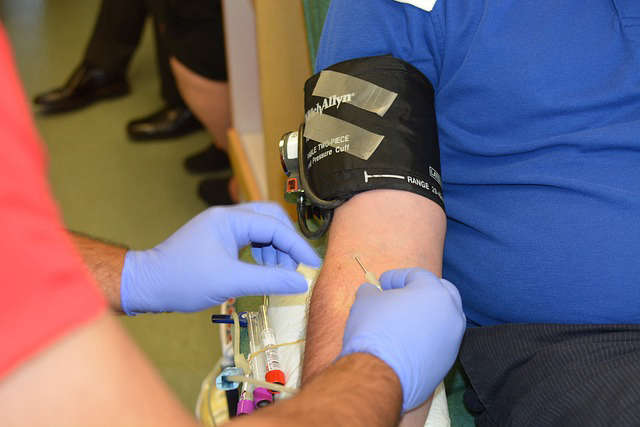
The County of Brant is asking the community to be prepared for warm temperatures this summer, as they bring thunderstorms and extreme heat.
BRANT COUNTY - The County of Brant is reminding residents that warm temperatures bring thunderstorms and extreme heat.
Emergency Management Program Manager for the County of Brant and City of Brantford, Kent Pottruff says protecting yourself during hot weather is important.
"When it is really hot outside, your body may not be able to cool itself properly. Knowing the symptoms of heat stroke and ways to protect yourself are important."
Common symptoms of heat stroke include dizziness, vomiting and fainting. The County has cooling stations in case of an extreme heat alert, and they also suggest to drink water every 15 to 20 minutes to prevent a heat-related illness. If an extreme heat alert is in effect, check
their website, social media platforms and local media for cooling locations.
If you know someone who is suffering from heat stroke, go sit or lie down in a cool place and rehydrate.
And during a storm, they also suggest staying away from skylights, glass doors and windows if you are indoors.
Pottruff says it's best to find shelter right away.
"It’s really important to be aware of weather conditions and warnings. Seek shelter immediately if a warning has been issued or if you believe one could occur. Subscribing to the WeatherCan, the Weather Network app, or ECAlertON86 on Twitter is a great way to receive alerts when bad weather is approaching."
The County says to also not run water in your house during a storm, as lightning can enter through pipes and plumbing.
Other tips to consider if you are either indoor or outdoors during a thunderstorm:
- Do not take showers or baths during a thunderstorm.
- Remain indoors during a thunderstorm and stay inside for at least 30 minutes after the
last rumble of thunder.
- Be prepared to seek shelter in a basement or interior room on the lowest level if
conditions worsen.
If you are outdoors:
- If you hear thunder, then lightning is close enough to be dangerous. Take shelter in an
enclosed building or metal-topped vehicle.
- Avoid water, high ground, isolated trees, power lines and picnic shelters. Small, open
structures don't protect you from lightning.
- If there is no shelter, go to a low-lying area away from tall, isolated objects. Crouch
down and put your feet together. Do not lie down.



 New Coaches Coming to Tavistock Braves
New Coaches Coming to Tavistock Braves
 Norfolk OPP Investigation Leads to Charge
Norfolk OPP Investigation Leads to Charge
 U14 Girls Oxford Attack Continue Season
U14 Girls Oxford Attack Continue Season
 Province Increasing Speed Limit on 10 Sections of Highways
Province Increasing Speed Limit on 10 Sections of Highways
 EZT Strategic Plan Survey Closing Soon
EZT Strategic Plan Survey Closing Soon
 Realtors Care Food Drives Returns!
Realtors Care Food Drives Returns!
 Plattsville Celebrates New Housing Complex
Plattsville Celebrates New Housing Complex
 Two Have Licence Suspensions in Oxford
Two Have Licence Suspensions in Oxford
 False 9-1-1 Calls Hit Norfolk County
False 9-1-1 Calls Hit Norfolk County
 Woodstock Choralaires Hosting 70s Themed Show
Woodstock Choralaires Hosting 70s Themed Show
 Thamesford Tim Hortons Accepting Smile Cookie Preorders
Thamesford Tim Hortons Accepting Smile Cookie Preorders
 Three Vehicle Crash Investigation in Brant
Three Vehicle Crash Investigation in Brant
 News Poll: Blood Donation
News Poll: Blood Donation
 WCI Red Players Present: Concert for the Cure 2024
WCI Red Players Present: Concert for the Cure 2024
 Oxford Resident Charged with Shoplifting
Oxford Resident Charged with Shoplifting
 Earth Day is Celebrated in Woodstock
Earth Day is Celebrated in Woodstock
 One Man Charged after Fraudulent Activity
One Man Charged after Fraudulent Activity
 Norfolk OPP Catch Impaired Driver
Norfolk OPP Catch Impaired Driver
 Woodstock Navy Club Welcomes Universal Washroom
Woodstock Navy Club Welcomes Universal Washroom
 Oxford County Waste Survey Closing Soon
Oxford County Waste Survey Closing Soon



Comments
Add a comment